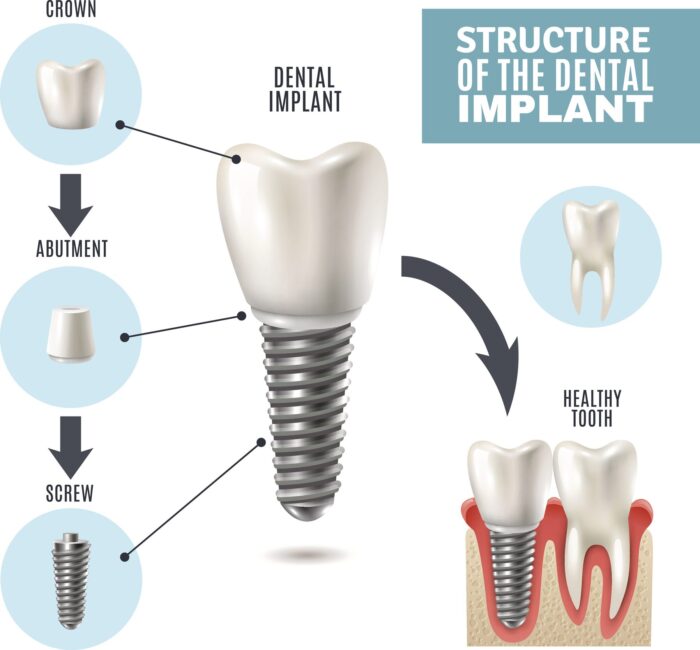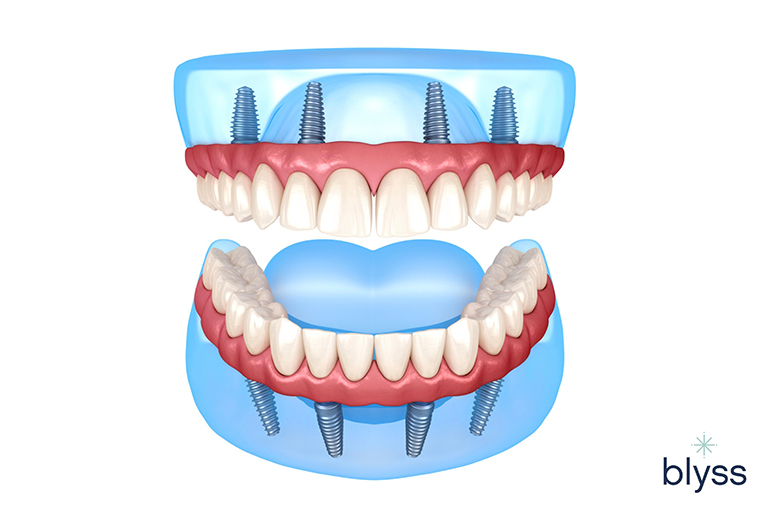Some Known Questions About Dental Sense.
Some Known Questions About Dental Sense.
Blog Article
Some Known Facts About Dental Sense.
Table of ContentsThe Buzz on Dental SenseIndicators on Dental Sense You Need To KnowThe Dental Sense PDFsThe smart Trick of Dental Sense That Nobody is Discussing
are medical gadgets surgically dental implanted into the jaw to bring back an individual's capability to chew or their appearance. They offer assistance for synthetic (fake) teeth, such as crowns, bridges, or dentures. When a tooth is shed because of injury or condition, a person can experience complications such as rapid bone loss, defective speech, or modifications to eating patterns that cause discomfort.Dental dental implant systems include an oral implant body and oral implant joint and may likewise consist of a joint fixation screw. Wisdom tooth cavity. The dental implant body is operatively put in the jawbone in area of the tooth's root. The oral implant abutment is generally connected to the implant body by the abutment fixation screw and prolongs with gum tissues into the mouth to sustain the connected man-made teeth
(https://issuu.com/dentalsense1)Structure of The Oral Implant System selecting dental implants, talk to your dental provider regarding the possible advantages and risks, and whether you are a prospect for the treatment. Things to think about: Your general health and wellness is an essential consider determining whether you are a great candidate for oral implants, for how long it will certainly take to recover, and for how long the dental implant may remain in area.
Cigarette smoking may affect the healing process and lower the long-lasting success of the implant. The healing process for the implant body might take a number of months or longer, during which time you typically have a short-lived abutment instead of the tooth. the oral implant procedure: Thoroughly follow the dental hygiene instructions provided to you by your oral service provider.
The Buzz on Dental Sense
Implant failing can result in the need for one more surgical procedure to deal with or change the implant system. Recovers the capacity to chew Restores cosmetic look Assists keep the jawbone from shrinking because of bone loss Protects the wellness of the surrounding bone and gums Assists keep surrounding (close-by) teeth stable Boosts high quality of life Damages to bordering all-natural teeth during implant placement Injury to the surrounding tissues during surgical treatment, such as sinus opening Injury during surgical treatment (for instance, fracture of bordering jawbone) Inadequate function, such as really feeling like the teeth do not bite with each other typically An experience that the tooth hangs or twisting in position arising from an abutment screw loosening Implant body failing (looseness of the dental implant body) as a result of systemic infection, which may be most likely in clients with unrestrained diabetes due home to regional infection in bone and gums sustaining the implant body because of postponed recovery, which might be most likely in individuals who smoke Difficulty cleansing the gums around the implant, resulting in bad oral hygiene Neglected periodontal illness Post-surgical feeling numb due to nerve impingement or damage Constantly notify healthcare companies and imaging specialists that you have oral implants before any magnetic resonance imaging (MRI) or x-ray treatments.
FDA is not knowledgeable about any type of unfavorable occasions reported for MRI or x-ray procedures with oral implants. Oral implants systems are normally made from products that adhere to global agreement criteria of the International Organization for Standardization (ISO) or ASTM International. These criteria have information of what makes a safe product.

A dental implant is a structure that replaces a missing tooth. With screw-like devices, the doctor inserts an implant right into the jawbone, and it works as an anchor for an artificial tooth, called a crown. A gadget called an abutment attaches the man-made tooth to the oral implant. The crown is personalized to fit the individual's mouth and match the color of their teeth.
Dental Sense Can Be Fun For Anyone
Some individuals are not eligible for oral implant surgical treatment. It is for oral doctors to operate people with: severe illnessuncontrollable metabolic diseasebone or soft cells condition or infectionIf these problems are solved, a person can have the surgical treatment. In, dental doctors abstain from running on individuals with: If people with any of the above go through dental implant surgical treatment, there is a greater danger of the implant failing.

Dental dental implant surgery is a personalized procedure. It's not the exact same for everyone. Yet the adhering to offers a general overview of what you can anticipate your dental expert, dental specialist, periodontist or prosthodontist to do: Put the implant operatively. Provide you time to recover. Attach the article and last crown, bridge or denture.
Next off, your cosmetic surgeon will carefully position the dental implant into your jaw. Your doctor will certainly rearrange your gum tissues and shut the incision with stitches. If your dental implant is near the front of your mouth, your dental expert will make a momentary tooth for you to use till you heal. That way, you won't have a gap in your smile while you recuperate.
The 9-Minute Rule for Dental Sense
Throughout the recovery phase, your jawbone needs to fuse to the oral implant. This procedure can take anywhere from three to nine months.
As soon as your dental implant heals, your dental practitioner can attach the abutment (little adapter message) and your last restoration (crown, bridge or denture). This typically takes regarding one hour to finish and might need a second small surgical treatment. You should not feel any type of discomfort during your dental implant procedure due to the fact that your copyright will use drug to numb your gum tissues.
Report this page